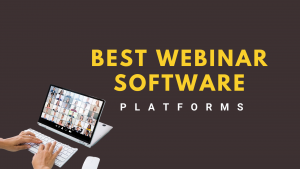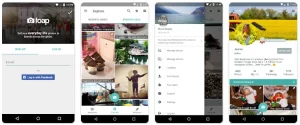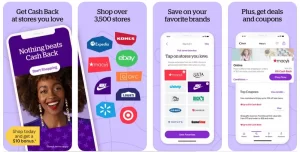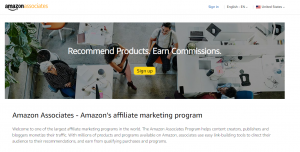|
Play Me
Getting your Trinity Audio player ready...
|
In today’s fast-paced digital landscape, businesses need to have a strong online presence to succeed. This is where marketing automation platforms like HubSpot come in. HubSpot is a powerful all-in-one marketing, sales, and customer service software platform that can help businesses streamline their operations and achieve their goals. In this article, we’ll take a closer look at what HubSpot is, its key features, benefits, pricing, and limitations, as well as how it compares to other marketing automation platforms.
What is HubSpot?
HubSpot is a marketing automation platform that helps businesses streamline their marketing, sales, and customer service processes. It offers a range of features, including lead generation tools, email marketing, social media management, CRM, and analytics, all in one centralized location. HubSpot is designed to help businesses attract, engage, and delight customers at every stage of their journey.
Key Features of HubSpot
HubSpot offers a wide range of features to help businesses streamline their marketing and sales processes. Some of the key features of HubSpot include:
- Lead Generation Tools: HubSpot offers a range of lead generation tools, including forms, landing pages, and pop-ups, to help businesses attract and capture leads.
- Email Marketing: HubSpot allows businesses to create and send personalized email campaigns to their subscribers and customers.
- Social Media Management: HubSpot allows businesses to manage their social media accounts and schedule posts in advance.
- CRM: HubSpot’s CRM allows businesses to track and manage their customer interactions and sales processes.
- Analytics: HubSpot offers a range of analytics tools to help businesses track and measure the success of their marketing and sales efforts.
Benefits of HubSpot
Increased Efficiency and Productivity
One of the biggest advantages of using HubSpot is the ability to streamline and automate many of your marketing, sales, and customer service processes. With HubSpot’s integrated platform, you can manage everything from social media and email marketing to lead scoring and customer feedback in one place, eliminating the need for multiple tools and reducing the risk of data silos. This not only saves time but also makes it easier to track and measure your results, allowing you to make data-driven decisions and optimize your campaigns for maximum impact.
Improved Lead Generation and Nurturing
Another significant benefit of HubSpot is its advanced lead generation and nurturing capabilities. With features such as landing pages, forms, and CTAs, you can capture more leads and convert them into paying customers. HubSpot’s lead scoring system also helps you identify the most qualified leads and prioritize them for follow-up, while its automated workflows enable you to nurture leads with targeted content and personalized messaging based on their behavior and interests.
Better Customer Engagement and Retention
HubSpot’s customer service tools are also worth noting, as they can help you improve customer engagement and retention. With the ability to track customer interactions across multiple channels, you can provide a more personalized and seamless experience that builds trust and loyalty. HubSpot’s ticketing system and knowledge base also make it easier to resolve customer issues quickly and efficiently, reducing churn and increasing satisfaction.
Access to a Range of Educational Resources and Certifications
Finally, HubSpot provides access to a wealth of educational resources and certifications to help you grow your skills and knowledge. From free courses and guides to more in-depth certifications and training programs, HubSpot Academy offers a variety of options to suit your needs and goals. This not only helps you get the most out of the platform but also enhances your overall marketing, sales, and customer service skills, making you a more valuable asset to your organization.
Overview of HubSpot’s pricing plans
HubSpot offers four different pricing plans: Free, Starter, Professional, and Enterprise. Each plan offers different features and capabilities, and pricing is based on the size and needs of your business.
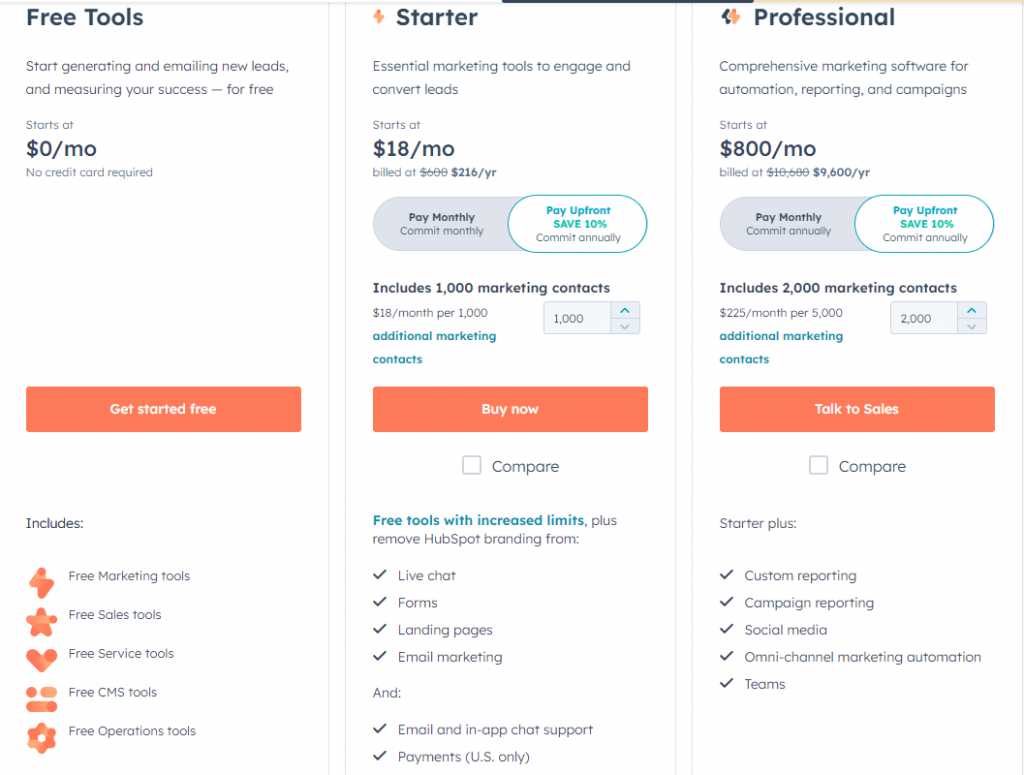
Free Plan:
The Free plan is exactly what it sounds like – it’s free! This plan is best suited for small businesses or individuals who are just starting out and need basic marketing tools. It includes features such as email marketing, forms, and contact management, but does not include more advanced features like lead scoring or automation.
Pros: It’s free, so it’s a great way to try out HubSpot’s platform without any financial commitment. You can also upgrade to a paid plan as your business grows and your needs change.
Cons: The free plan has limited features and capabilities, so it may not be sufficient for more advanced marketing efforts.
Starter Plan:
The Starter plan is a good fit for small businesses that need more advanced marketing features like automation and lead scoring. It includes all the features of the Free plan, plus additional features like marketing automation, ad management, and basic reporting.
Pros: The Starter plan is affordable and provides access to some of HubSpot’s more advanced marketing tools.
Cons: The Starter plan has limitations on the number of contacts and emails you can send, which may not be sufficient for larger businesses.
Professional Plan:
The Professional plan is designed for businesses that need more advanced marketing and sales tools. It includes all the features of the Starter plan, plus more advanced features like lead nurturing, A/B testing, and advanced reporting.
Pros: The Professional plan offers more advanced features and capabilities, making it a good fit for larger businesses with more complex marketing needs.
Cons: The Professional plan is more expensive than the Starter plan, and pricing is based on the number of contacts you have in your database.
Enterprise Plan:
The Enterprise plan is the most advanced plan HubSpot offers. It includes all the features of the Professional plan, plus additional features like custom reporting and advanced analytics. This plan is best suited for large businesses with complex marketing and sales operations.
Pros: The Enterprise plan provides access to HubSpot’s most advanced features and capabilities, making it a good fit for large businesses with complex needs.
Cons: The Enterprise plan is the most expensive plan, and pricing is based on the number of contacts you have in your database.
Determining the Right Plan for Your Business:
To determine which plan is right for your business, you’ll need to consider your budget, business size, and marketing needs. Start by assessing your current marketing efforts and identifying the areas where you need the most help. Then, consider your budget and how much you’re willing to spend on marketing software. Finally, evaluate the features and capabilities of each plan and choose the one that best fits your needs and budget. Remember, you can always upgrade or downgrade your plan as your business grows and your needs change.
Some of the limitations of HubSpot
While HubSpot has many benefits, there are also some limitations to the platform that businesses should be aware of before deciding to use it. Here are some of the main limitations:
- High pricing for small businesses: While the Free and Starter plans can be affordable for small businesses, the Professional and Enterprise plans can be quite expensive. For small businesses with limited budgets, the cost of these plans may be prohibitive.
- Potential learning curve for new users: HubSpot has a robust set of features and capabilities, which can be overwhelming for new users. The platform can take some time to learn, and businesses may need to invest in training or support to get the most out of the platform.
- Limitations of certain features: While HubSpot has many features, some of them have limitations that businesses should be aware of. For example, the landing page builder is not as flexible as some other platforms, and the email editor can be difficult to use for advanced formatting.
- Integrations with other platforms: HubSpot integrates with many third-party platforms, but some integrations may require additional setup or customization, which can be time-consuming and costly.
- Reporting limitations: While HubSpot provides many reporting options, some businesses may find the reporting limitations to be a drawback. For example, the reporting dashboard can be limited in terms of customization and the number of metrics that can be displayed.
It’s important for businesses to carefully consider the limitations of HubSpot before deciding to use the platform. While HubSpot has many benefits, businesses should ensure that the platform meets their specific needs and budget constraints.
Comparison of HubSpot to other marketing automation platforms
HubSpot is just one of several marketing automation platforms available on the market. Here’s a comparison of HubSpot to two other popular marketing automation platforms:
- Salesforce:
Salesforce is a customer relationship management (CRM) platform that offers marketing automation features through its Marketing Cloud product. Salesforce Marketing Cloud offers features like email marketing, social media advertising, and marketing automation workflows.

Compared to HubSpot, Salesforce Marketing Cloud is more focused on enterprise-level businesses, with more advanced features for larger companies. Salesforce Marketing Cloud also integrates well with the Salesforce CRM, which can be beneficial for businesses already using Salesforce. However, Salesforce Marketing Cloud can be more complex and difficult to use compared to HubSpot, especially for smaller businesses.
- Marketo:
Marketo is a marketing automation platform that offers features like email marketing, lead management, and lead scoring. Marketo is similar to HubSpot in that it offers a suite of marketing automation tools for businesses of all sizes.

Compared to HubSpot, Marketo is more focused on B2B marketing, with more advanced lead management and scoring features. Marketo also has a more robust set of integrations compared to HubSpot, making it a good choice for businesses that need to connect their marketing automation platform with other software tools. However, Marketo can be more expensive than HubSpot, especially for businesses with larger databases.
- Pardot:
Pardot is a marketing automation platform that is part of the Salesforce product suite. It offers features like lead generation, lead scoring, and email marketing.
Compared to HubSpot, Pardot is more focused on B2B marketing, with advanced lead generation and scoring capabilities. Pardot is also tightly integrated with the Salesforce CRM, making it a good choice for businesses already using Salesforce. However, Pardot can be more complex to set up and use compared to HubSpot, especially for smaller businesses.
Ultimately, the choice between HubSpot and other marketing automation platforms will depend on the specific needs of your business. HubSpot’s focus on inbound marketing and ease of use make it a good choice for many small to medium-sized businesses, while other platforms may be better suited for larger or more complex marketing operations.
In this blog post, we discussed the key benefits of using HubSpot, including increased efficiency and productivity, improved lead generation and nurturing, better customer engagement and retention, and access to a range of educational resources and certifications. We also covered the pricing plans offered by HubSpot, and discussed the pros and cons of each plan.
Additionally, we touched on some of the limitations of HubSpot, such as high pricing for small businesses, potential learning curve for new users, and limitations of certain features. Finally, we compared HubSpot to other marketing automation platforms, such as Salesforce, Marketo, and Pardot.
Whether or not HubSpot is the right choice for your business ultimately depends on your specific needs, budget, and goals. HubSpot is an excellent choice for small to medium-sized businesses looking to improve their inbound marketing efforts and streamline their marketing automation processes. However, larger businesses or those with more complex marketing operations may benefit from a platform with more advanced features and integrations.
In conclusion, HubSpot offers a comprehensive suite of marketing automation tools, educational resources, and certifications to help businesses of all sizes improve their marketing efforts. By carefully evaluating your business needs and comparing HubSpot to other marketing automation platforms, you can make an informed decision about whether HubSpot is the right choice for your business.





